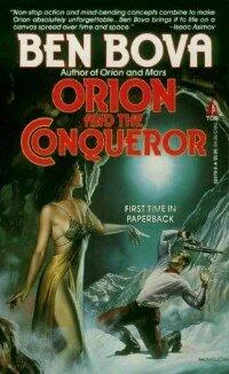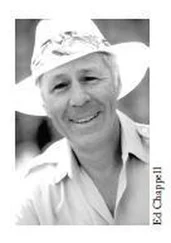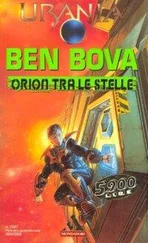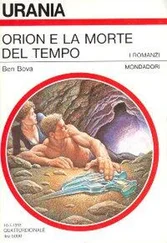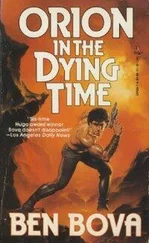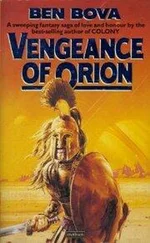Most of the tribesmen served not as hoplites in a phalanx but as peltasts, archers or slingers or javelin throwers, light infantry that could skirmish against the heavier-armed phalanxes and dash away before the hoplites could close with them. The mercenaries were all hoplites, of course, heavy infantry.
“The country’s full of mercenary troops,” Nikkos told me. “Any poor boy who wants to make something of himself joins a mercenary troop and goes off soldiering. Every city in the land grows soldiers nowadays. Except Athens, of course.”
“What do they grow in Athens?” I asked.
“Lawyers.” And he spat again.
Some of the other men near us laughed. I let it pass.
The men fell to arguing over which city produced the best soldiers. Some felt that the Spartans were the bravest, but most agreed that Thebes had an even better reputation.
“Especially their Sacred Band,” said one of the men.
“The Sacred Band aren’t mercenaries,” Nikkos pointed out. “They fight only for Thebes.”
“And damned well, too.”
“They’re all lovers. Each man in the Sacred Band is part of a pair.”
“The philosophers say that makes the best kind of soldier, a man who’s fighting alongside his lover. They’ll never let each other down.”
“Fuck the philosophers. The Sacred Band’s the best damned bunch of soldiers in the world.”
“Better than us?”
“Better.”
“We have a better general!”
“But they’re not mercenaries. As long as we don’t make war against Thebes we don’t have to worry about them.”
“There are plenty of Theban mercenaries, though. Even the Great King, over in Asia, hires mercenaries from Thebes.”
“The Great King?” I asked.
Nikkos gave me a peculiar look. “Of Persia,” he said. “Don’t you know anything?”
I could only shake my head.
Nikkos did not trust the newly-arrived Argives. He kept calling them “pretty boys” who would be next to worthless in a real battle. For their part, the Argives swaggered through the camp as if they were each personally descended from Achilles, and laughed at our constant drilling.
“Why doesn’t the king send them against the wall?” Nikkos grumbled. “Then we’d see what they’re really made of.”
But Philip apparently had no intention of attacking the city wall. The army sat outside and did little more than drill—and fire a few missiles into the city each day. The Perinthians sat tight and cheered each time a ship sailed into their wall-protected harbor.
Our phalanx was camped next to the strutting Argives, and there was plenty of bad blood between us. It was natural, I suppose; if we were not allowed to fight the real enemy we fought each other. There were rows and fistfights almost every night. The officers on both sides sternly punished the men involved; Nikkos himself took ten lashes one morning while we were all made to stand at attention and watch. One of Philip’s generals, Parmenio, threatened to stop our wine supply if we did not behave.
“We’ll see how belligerent you are on water,” he growled at us. I had heard that Parmenio was a wine lover, and he looked it: heavy and red-faced, with broken blood vessels splotching his cheeks and bulbous nose.
The Argives were punished by their own officers, of course, but it seemed to us that their punishments were much lighter than our own.
I tried to stay out of the squabbling. Without quite remembering the details I recalled how another army had been almost destroyed because of a quarrel between its leaders. Was that at Troy?
Then came the night that changed everything.
“Where is Troy?” I asked Nikkos that evening, as we reclined on our blankets in front of the dinner fire.
He furrowed his brow at me. “Who knows? Maybe it’s only a story.”
“No,” said one of the other men. “It’s on the other side of the Hellespont.”
“It’s still there? I thought it was burned to the ground.”
“That’s where it was.”
“How do you know? If it ever existed it was so long ago—”
“In the time of heroes.”
“Heroes?” I asked.
“Like Achilles and Odysseus and Agamemnon.”
Odysseus. That name rang a bell in my mind. Was it he who gave me the dagger I kept strapped to my thigh?
“What do you horse thieves know about Agamemnon?” shouted one of the Argives, barely a stone’s throw from our fire.
“He was one of the leaders of the Achaians at Troy,” I answered.
“He was an Argive,” said the mercenary, stepping into the light from our fire. “King of Mycenae. Not some shit-footed farmer from the hills like you bunch.”
I got to my feet. The Argive was big, and wearing his muscled cuirass plus a short stabbing sword at his hip, but I was taller by half a head and wider across the shoulders.
“I am of the house of Odysseus,” I said, half-dreaming. “I remember that.”
His jaw dropped open, then he laughed and planted his fists on his hips. “You’ve taken one too many blows on your head, Scythian. You’re crazy.”
I wondered how he knew that I was believed to be a Scythian.
Another Argive stepped up beside the first one. He too was armed. Nikkos and several others of my band scrambled to their feet.
“Odysseus has been dead for a thousand years,” said the second Argive. He had a nasty sneer on his bearded face. “If he ever lived at all.”
“He lived,” I said. “I was with him.”
“At Troy, I suppose.”
They both laughed at me. Then the second one stepped close and looked up into my face. He barely came to my shoulders.
“You’re crazy, all right,” he said.
“Or a champion liar,” said the first Argive.
I could feel Nikkos and the other men behind me stiffen with tension.
“No, look,” I said, reaching for my dagger. “Odysseus gave me—”
The Argive jumped back and pulled the sword at his belt. “Trying to knife me!”
“No, I—”
He lunged at me. I parried with the dagger and punched him in the jaw with my left hand. He went down like a slaughtered ox.
And the camp around me erupted into violence. Men were punching, kicking, biting, wrestling each other onto the ground. I stood in the midst of it, the dagger still in my hand, while the fight swirled around me.
Feeling dumbfounded, I backed away, out of the firelight. At least they weren’t using weapons, I thought. The one man who had drawn his sword lay unconscious by the fire.
Officers were bellowing in the night. I sheathed the dagger and stepped back into the fray, trying to separate the fighting men.
Philip himself rode up on a chestnut horse, bareheaded, without armor, his one good eye blazing with anger.
“Stop this at once!” he roared. And we stopped. The authority in his powerful voice was unmistakable.
For a moment everything was quite still. Men stood or knelt or lay stretched on the ground, all of us covered with dust, some of us bloody. Nikkos, his shirt torn and the welts on his back still livid, had one knee on the chest of an Argive and his teeth clamped on the man’s bloody ear.
Before Philip could say another word a stone came hurtling out of the darkness and struck him squarely on the back of his head. It sounded almost as loud as one of the catapult bolts landing. Philip’s head snapped forward, he slumped and fell off the horse. An Argive ran up with a spear in his hand and I saw that about a dozen of the Argives had formed a ring around Philip’s prostrate body. All of them had swords in their hands.
I charged forward, head down, and bulled through the ring of armored men, grabbed the spear and wrested it from the Argive’s hands before he could plunge it into the unconscious king.
Battle fury seized me again and the world slowed down around me. Holding the spear like a quarter-staff I smashed its weighted end into the face of the man I had taken it from. He fell like a stone. Then I stood over Philip’s body, my back to his nervously stamping horse, ready to protect the king. The circle of armed Argives looked stunned with surprise. Beyond them Nikkos and the others of my troop seemed just as shocked and frozen into immobility.
Читать дальше
